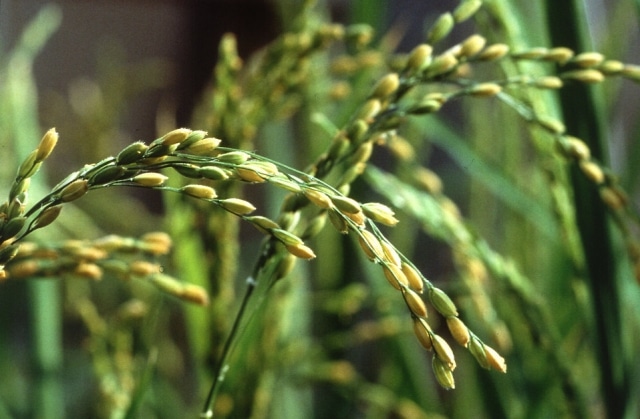Lord Lawson’s Global Warming Policy Foundation (GWPF) argues that carbon pollution is terrific, but climate scientists and policymakers aren’t buying it, writes Dana Nuccitelli of the Guardian.
The anti-climate policy ‘fact blurring’ advocacy group Global Warming Policy Foundation (GWPF) recently published a report on ‘the good news’ about rising carbon dioxide, written by Indur Goklany. Goklany has a background in electrical engineering and has been a US delegate to the IPCC. He has also in the past received $1,000 per month from the Heartland Institute and had two books published by the Cato Institute, among other affiliations with fossil fuel-funded think tanks.
Goklany’s affiliation with and funding from these think tanks is relevant due to the nature of the GWPF report, which essentially argues that carbon pollution is the best thing since sliced bread.
The Bad Outweighs The Good
Professor Colin Prentice, expert in climate change impacts on the biosphere at Imperial College London, put together a nice summary of what the report gets right and wrong. While the GWPF report is correct that there are some benefits from rising carbon dioxide levels, as Prentice notes,
The good news should not blind us to the negative implications of continued unabated climate change, and the multidecadal lead times required for policies to have any discernible effect on CO2 and climate. These are the reasons propelling international pressure for long-term carbon neutrality, and nothing that Goklany says in his report invalidates them.
In short, the report selectively considers only the evidence that supports its argument that carbon pollution is terrific. The report also argues against a strawman, portraying its opponents as claiming that there are no benefits associated with global warming. In reality, climate scientists and economists consider all climate change impacts, both good and bad, in their overall assessments. Unfortunately the bad consequences far outweigh the good, as even the GWPF’s own economic advisor Richard Tol has concluded. As climate scientist Richard Betts noted,
Assessments of the impacts of climate change on ecosystems and crops do include CO2 effects as well as physical climate effects, and while there are uncertainties in both, current understanding suggests that CO2 effects on photosynthesis will tail off while the impacts of climate change itself continue. The harms may well outweigh the benefits, especially when we remember that sea level rise is an inevitable consequence of a warming world. There are no good reasons to assume that that the effect of CO2 on plants is some sort of “get out of jail free” card.
‘CO2 is Plant Food’ is an Oversimplification
The GWPF report mostly focuses on what’s sometimes called ‘global greening,’ associated with carbon dioxide fertilization of plants. It’s essentially the ‘CO2 is plant food’ oversimplification, tackled by Professor Sarah Green in the Denial101x lecture below.
In short, if all else is equal, higher carbon dioxide is generally better for plant growth. The problem is that when atmospheric carbon dioxide levels rise in the real world, we can’t hold everything else constant the way we can in a greenhouse. Temperatures rise, and the resulting extreme heat can have severely detrimental impacts on plant growth, particularly for certain crops like maize. That rise in temperatures also amplifies droughts, the increase of water vapor in the atmosphere intensifies floods, and so on.
To evaluate the impact of rising carbon dioxide and the associated climate changes on crop yields, all these factors need to be considered. While rising carbon dioxide may have benefited agricultural productivity so far, most studies project a decline in crop yields starting in 2030, and climate change poses many other dangerous risks, as summarized in the latest IPCC report.
Misleading Media Coverage of the GWPF Report
The Times and The Australian published a commentary on the GWPF report written by Matt Ridley, who is an advisor to the GWPF. Ridley touted the report as having been “thoroughly peer-reviewed, as was almost all of the voluminous literature it cited,” although when pressed, it was revealed that the report was reviewed by individuals hand-picked by the GWPF. Moreover, many of the key references cited in the report were not peer-reviewed. Graham Readfearn contacted one scientist whose research had been referenced to support the report’s claims of ‘global greening,’ Professor Ranga Myneni of Boston University. Professor Myneni noted that the referenced presentation had not yet been peer-reviewed, and said,
“If one were to interpret the greening of the Earth as a good or a positive development then one must also accept that the accompanying climate changes (global warming, for example) and its physical (sea level rise) and biotic impacts (polar bears) as bad or negative developments.
Again, in my opinion, this benefit of greening is not worth price of all the negative changes.”
Click here to read the rest, including details on climate change and wildfires, and climate action ahead of the Paris climate conference.
Photo via Public Domain
Subscribe to our newsletter
Stay up to date with DeSmog news and alerts







